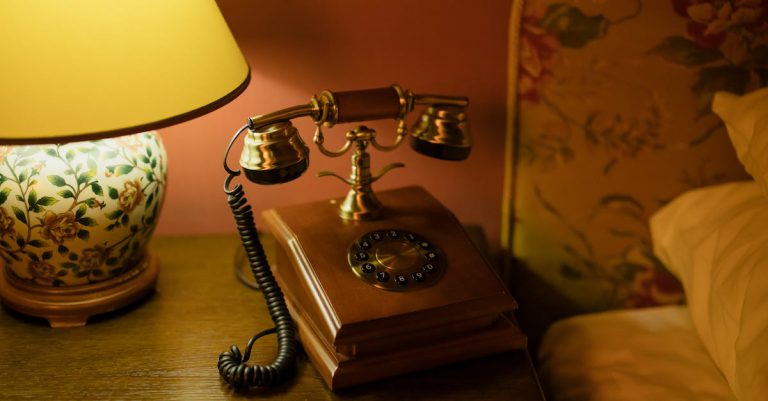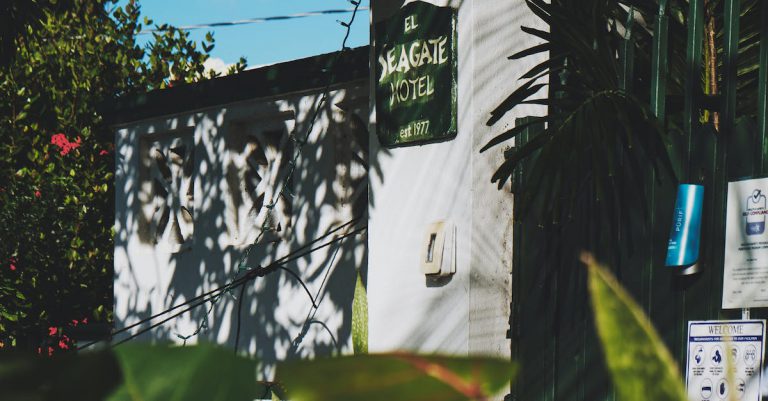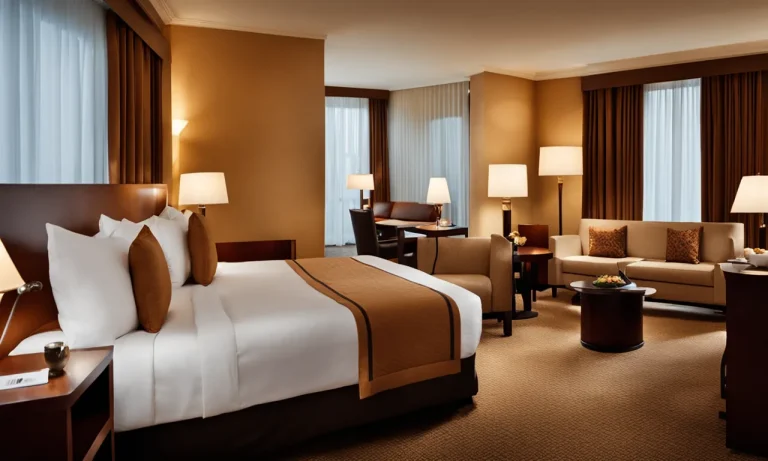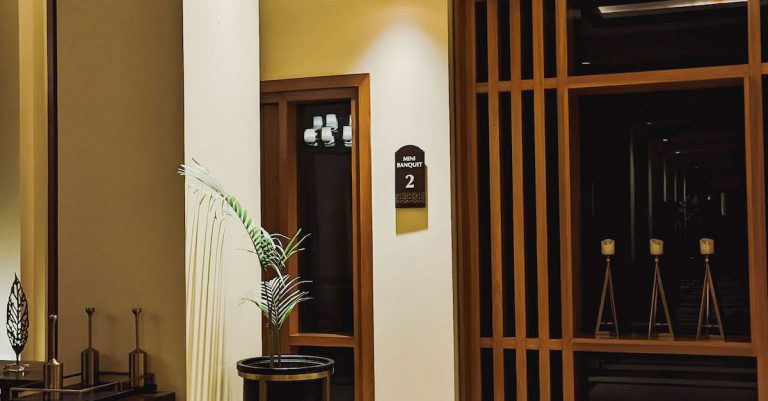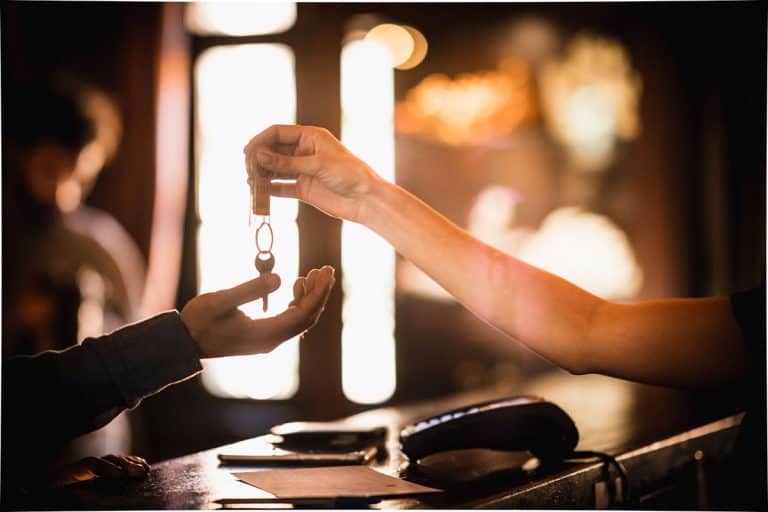Hotels aim to provide a safe and comfortable environment for their guests. One critical aspect of this safety protocol involves smoke detectors. While they are indispensable for safety, their sensitivity might cause some inconvenience under certain circumstances. You might be wondering, ‘How to properly cover a smoke detector in a hotel room?’ If you’re short on time, here’s a quick answer: it’s generally illegal and unsafe to cover or tamper with smoke detectors.
Nevertheless, in this article, we will discuss the reasons behind smoke detector sensitivity, how they work, the legal and safety implications of covering them, and acceptable ways to minimize potential false alarms, all while ensuring your safety and those around you.
The Role and Importance of Smoke Detectors in Hotels
When it comes to ensuring the safety of hotel guests, smoke detectors play a crucial role. These small devices are designed to detect the presence of smoke and alert occupants to the potential danger of a fire. By providing early warning, smoke detectors give people the opportunity to evacuate the building quickly and seek help, greatly reducing the risk of injuries or fatalities.
The Working Principle of Smoke Detectors
Smoke detectors operate on the principle of optical or ionization detection. Optical smoke detectors use a light source and a sensor to detect the presence of smoke particles. When smoke enters the detector, it scatters the light, triggering the alarm. On the other hand, ionization smoke detectors work by ionizing the air inside the device. When smoke enters the ionization chamber, it disrupts the electrical current, which then triggers the alarm.
Both types of smoke detectors are effective in different scenarios. Optical detectors are better at detecting smoldering fires, while ionization detectors are more sensitive to fast-flaming fires. Many modern smoke detectors incorporate both technologies to provide comprehensive fire detection.
Legal Requirements and Safety Standards
Smoke detectors in hotels are not just a matter of convenience; they are also subject to legal requirements and safety standards. Hotel owners and managers must comply with local regulations regarding the installation, maintenance, and testing of smoke detectors. These regulations often specify the number and placement of smoke detectors in guest rooms, common areas, and corridors.
Additionally, hotels are required to regularly inspect and test their smoke detection systems to ensure they are in proper working order. This may involve monthly or quarterly testing, as well as annual inspections by qualified professionals. By adhering to these standards, hotels can demonstrate their commitment to guest safety and reduce the risk of liability in the event of a fire.
Also Read: Is It Illegal To Disable Smoke Detectors In A Hotel?
Understanding the Sensitivity of Smoke Detectors
Smoke detectors are an essential safety feature in hotel rooms, alerting occupants to the presence of smoke and potentially preventing a fire from spreading. Understanding the sensitivity of smoke detectors can help hotel guests and staff better manage these devices and avoid unnecessary false alarms.
Common Causes of False Alarms
False alarms from smoke detectors can be frustrating and disruptive to both hotel guests and staff. There are several common causes of false alarms that should be taken into consideration when dealing with smoke detectors in hotel rooms.
- Steam from hot showers or baths: Smoke detectors can mistake steam for smoke, triggering a false alarm. To prevent this, it is recommended to close the bathroom door while showering or bathing, and to use the bathroom exhaust fan to reduce steam.
- Cooking fumes: Smoke detectors can also be triggered by cooking fumes, especially if the cooking is done in close proximity to the detector. It is advisable to use the hotel room’s kitchenette or designated cooking areas, if available, to minimize the chance of a false alarm.
- Cigarette smoke: Smoking in hotel rooms is often prohibited, but if it is allowed, it is important to be aware that smoke detectors can be sensitive to cigarette smoke. To avoid triggering an alarm, it is best to smoke in designated smoking areas outside the hotel room.
- Dust or insects: Accumulated dust or insects inside a smoke detector can interfere with its sensitivity and cause false alarms. Regular maintenance and cleaning of smoke detectors can help prevent these issues.
The Science Behind Smoke Detector Sensitivity
Smoke detectors work by detecting the presence of smoke particles in the air. They are designed to be highly sensitive in order to detect even small amounts of smoke, as early detection is crucial in fire prevention. The sensitivity of smoke detectors is measured in terms of the concentration of smoke particles required to trigger an alarm.
Modern smoke detectors use different technologies to detect smoke, including ionization and photoelectric detection. Ionization smoke detectors are more sensitive to fast-burning, flaming fires, while photoelectric smoke detectors are better at detecting slow-burning, smoldering fires. Some smoke detectors use a combination of both technologies to provide comprehensive coverage.
It is important to note that while smoke detectors are designed to be sensitive, they can still have limitations. Factors such as the placement of the smoke detector, the presence of obstructions, or the type of fire can affect their effectiveness. Regular testing and maintenance of smoke detectors is essential to ensure their proper functioning.
For more information on smoke detectors and fire safety, you can visit websites such as the National Fire Protection Association (NFPA) or the United States Fire Administration (USFA).
The Risks and Consequences of Covering Smoke Detectors
Safety Risks
Smoke detectors are an essential safety feature in hotel rooms, designed to detect the presence of smoke and alert occupants to potential fires. However, covering or tampering with these devices can have serious safety consequences. When smoke detectors are covered, their ability to detect smoke is compromised, increasing the risk of delayed or missed fire detection. This can result in a delay in alerting hotel staff and guests to a potential fire, putting lives at risk.
In addition, covering smoke detectors can also prevent the sprinkler system from activating in case of a fire. Sprinkler systems are designed to extinguish or control fires, minimizing property damage and protecting occupants. By covering smoke detectors, the effectiveness of the sprinkler system is greatly reduced, leaving hotel guests and staff vulnerable to the spread of fire.
Legal Implications
Covering smoke detectors in hotel rooms is not only a safety risk but also carries legal implications. Hotels are required to comply with fire safety regulations and codes, which often mandate the installation and proper functioning of smoke detectors. By covering or disabling smoke detectors, hotels are violating these regulations, potentially exposing themselves to legal consequences.
In the event of a fire, if it is discovered that smoke detectors were covered or tampered with, the hotel may be held liable for any injuries, loss of life, or property damage that occurred as a result. Legal actions can be taken against the hotel, resulting in substantial fines, lawsuits, and damage to the hotel’s reputation.
Furthermore, insurance policies often require hotels to maintain proper fire safety measures, including functioning smoke detectors. If a fire occurs and it is found that smoke detectors were covered, insurance claims may be denied, leaving the hotel responsible for all financial losses.
It is crucial for hotels to prioritize the safety of their guests and comply with fire safety regulations. Regular maintenance and testing of smoke detectors, along with educating hotel staff and guests about the importance of not covering or tampering with these devices, are essential steps in preventing accidents and ensuring a safe environment for everyone.
Proper Ways to Manage Smoke Detector Sensitivity
Smoke detectors are an essential safety feature in hotel rooms, but sometimes they can become a nuisance due to false alarms. Understanding how to manage the sensitivity of smoke detectors can help prevent unnecessary disruptions during your stay. Here are some proper ways to manage smoke detector sensitivity:
Practices to Prevent False Alarms
To minimize the likelihood of false alarms, there are several practices you can follow:
- Keep the room well-ventilated: Ensure that there is proper airflow in the room to prevent the buildup of smoke or steam. Opening a window or turning on a fan can help maintain a clear environment.
- Avoid smoking or vaping near the detector: Smoke detectors are designed to detect particles in the air, so it’s important to avoid activities that can trigger false alarms. If you need to smoke or vape, do so in a designated area away from the detector.
- Be cautious when using aerosol products: Aerosol sprays, such as hair spray or air fresheners, can sometimes trigger smoke detectors. Use these products away from the detector or cover it temporarily to prevent false alarms.
- Regularly clean the detector: Dust and debris can accumulate on the smoke detector, affecting its sensitivity. Clean the detector regularly using a soft cloth or a vacuum cleaner to remove any buildup.
What to Do in Case of a False Alarm
If a smoke detector in your hotel room goes off unexpectedly, here are some steps to follow:
- Stay calm: False alarms can be startling, but it’s important to remain calm and composed.
- Check for signs of fire: Before assuming it’s a false alarm, quickly assess the room for any signs of fire or smoke. If you notice any, follow the hotel’s evacuation procedures immediately.
- Notify the hotel staff: If it is indeed a false alarm, inform the hotel staff about the situation. They can assist in resetting the smoke detector and ensuring its proper functioning.
- Document the incident: In some cases, false alarms may be a recurring issue. Take note of the date, time, and any relevant details about the incident. This information can be helpful when discussing the matter with hotel management.
Remember, smoke detectors are in place for your safety, and it’s important to treat them with care. By following these proper practices and knowing how to handle false alarms, you can ensure a comfortable and secure stay in your hotel room.
Conclusion
In conclusion, while the sensitivity of smoke detectors in hotel rooms can sometimes pose an inconvenience, it’s crucial to remember their role in ensuring safety. It’s both illegal and unsafe to tamper with or cover these devices. The key lies in understanding their function and adjusting our behaviors to avoid triggering false alarms. This detailed guide aims to provide a comprehensive understanding of the function and importance of smoke detectors, the consequences of tampering with them, and the ways to prevent false alarms without risking safety. Whether you’re a frequent hotel guest or planning your first stay, this information can help you maintain a comfortable and safe hotel experience.


